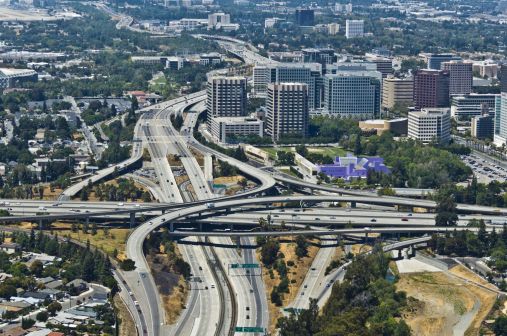California sheriff to stop sharing license-plate data after settlement

The sheriff’s office in Marin County, California, agreed to stop sharing license-plate and location data it collects with agencies from other states and federal authorities, like Immigration and Customs Enforcement, according to a legal settlement made public Wednesday.
According to the settlement, entered in a state superior court, Marin County Sheriff Robert Doyle — and his successors — will limit access to information collected by the county’s automated license plate readers to agencies within California, in compliance with a law restricting how immigration-related data can be shared with federal agencies.
The law in question, the California Values Act, was enacted in 2017 as a response to the Trump administration’s anti-immigrant policies, which included stepped-up enforcement actions by ICE and Customs and Border Patrol. The law blocked state and local law enforcement agencies from using their resources on behalf of federal action against non-violent immigrants.
But a 2021 lawsuit brought by three local pro-immigration activists in the tony enclave north of San Francisco argued that Doyle’s office was violating the California Values Act for years after its passage. The activists also claimed that in sharing license-plate reader data with federal authorities, Doyle was also crossing a 2015 law preventing non-California agencies from accessing information collected by those devices.
According to the original suit, the Marin County Sheriff’s Office collected 821,244 scans of license plates in 2020, with only 216 — or 0.02% — matching plates that were of interest to investigations. The activists also argued that an annual report on the the sheriff’s office published last year listed information sharing with 18 federal agencies, including ICE, CBP, the FBI and the Drug Enforcement Administration, as well as more than 400 out-of-state law-enforcement organizations.
The settlement announced Wednesday states that suit would be dropped after the sheriff’s office made certain “policy modifications” to comply with the two laws.
“This means that federal and out-of-state agencies will no longer be able to query information collected by the county’s automated license plate reader (ALPR) cameras—a form of mass surveillance technology that is a threat to privacy and civil liberties, particularly for marginalized groups,” read a press release from the Electronic Frontier Foundation, which represented the plaintiffs along with the American Civil Liberties Union of Northern California.
Local law enforcement’s license-plate readers have been under scrutiny for years in California, with the EFF and other groups arguing that police departments and sheriff’s offices were not following the 2015 data-sharing law. Then-State Auditor Elaine Howle later conducted a review of how four jurisdictions — including Marin County — used license-plate readers and handled data. Her audit found that Marin, along with Fresno County, was sharing its license-plate reader images with “hundreds” of other entities across the country.
Even with the reforms announced in the Marin County settlement, federal immigration authorities’ data-sharing appetite continues to grow. A report last month by Georgetown Law’s Center for Privacy and Technology found that ICE’s data collection now has images of roughly 75% of all Americans.






